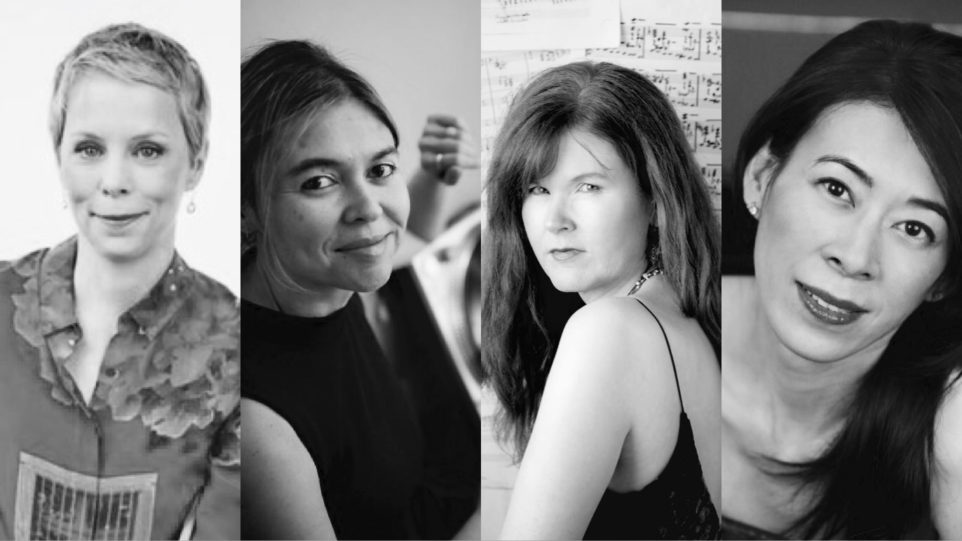Relevant Tones delves into the world of contemporary music, showcasing a wide variety of composers and musicians. Today, we celebrate International Women’s Day by chatting with four incredible artists that have previously been featured on Relevant Tones and continue to create significant music.
Augusta Read Thomas, composer and professor
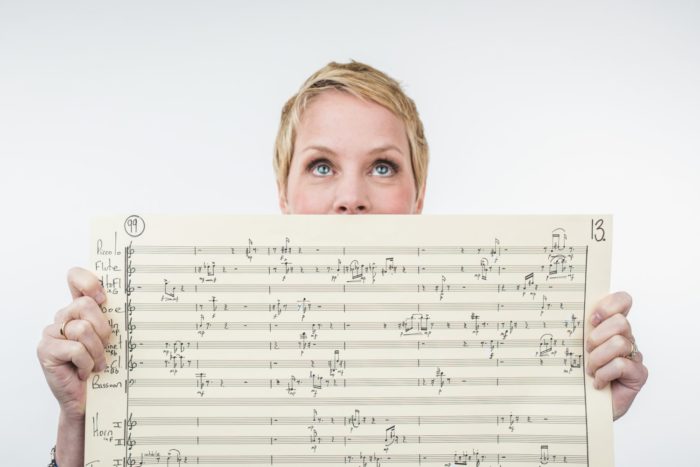 What does classical music mean to you?
What does classical music mean to you?
Since the age of 3 or 4, sound has been the focus of my passion, labors, and love. Music is my whole life.
Who have been female role models that have inspired you throughout your career?
A vast list of names instantly floods to mind! To mention just a few: Ella Fitzgerald, Emily Dickinson, Meryl Streep, Michelle Obama, Telga Loroupe, Nicole Paris; and of course, my Mother, Susan; my Aunt, Elly; my four sisters: Cammy, Penny, Elly, Dorothy; all my nieces; and my many female friends and colleagues who are scattered all around the globe.
What has been the greatest challenge in your career?
The word “career” is not one that enters my mind. Life is overflowing with creating sound and with supporting music of all kinds made by others. If my musical empathy and creativity results in what others call a “career,” that expression is fine, but for me, the greatest challenge in life is composing excellent compositions — sculpting, polishing, crafting every nuance into a radiant gestalt. I am never selfish and, for the past 30 years, spend many hours each week actively supporting the work of others.
What has been most rewarding about your art?
Getting all the countless musical parameters aligned elegantly. (Imagine a 3-D Crossword puzzle where all the elements align…elements including, for example, counterpoint, harmony, rhythm, flow, density, melody, space, empathy for the musicians, pitch, tempo, silence, lift, balance…) This sculpting requires decades of training and years of deep thinking and a dedicated soul. It is overwhelmingly rewarding when one is able to realize and share a gestalt for which one quested.
What advice would you give to someone entering the field today?
Remember every day how profoundly blessed you are to be fortunate enough to spend your life in music; and work generously and tirelessly to be an exemplary citizen.
Augusta Read Thomas: Helix Spirals: I. Loci, Memory Palace
Jenny Lin, pianist
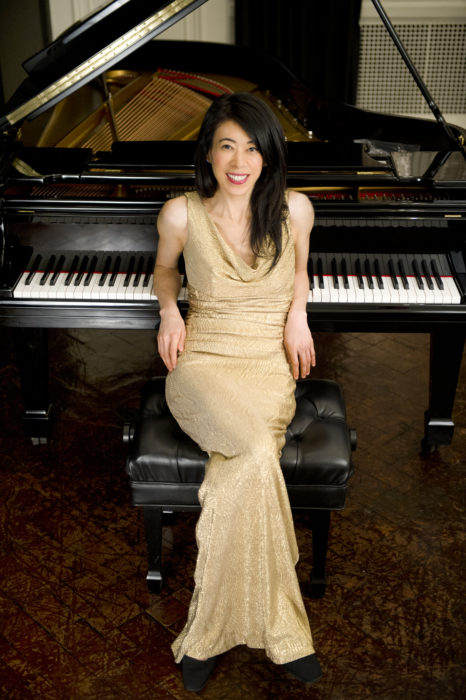 What does classical music mean to you?
What does classical music mean to you?
Music is a way for me to share what I know with others and it allows me to communicate without words. It is a gift.
Who have been female role models that have inspired you throughout your career?
Some female role models that have inspired me throughout my career were Maria Callas, Martha Argerich, and mostly my mother.
What has been the greatest challenge in your career?
To create something new each year.
What has been most rewarding about your art?
I think the most rewarding aspect of my art is when someone comes away from one of my performances feeling as if they experienced something new.
What advice would you give to someone entering the field today?
Never give up.
Live at Le Poisson Rouge: Philip Glass Birthday Bash. Philip Glass: Etude 19 & 20 – Jenny Lin, piano
Sarah Cahill, pianist, writer, and producer
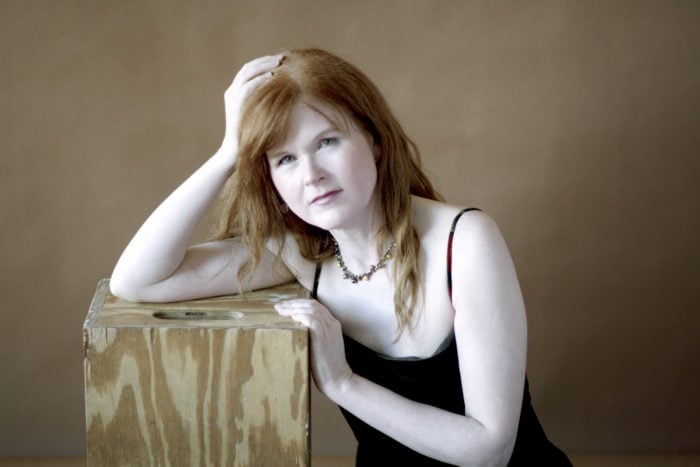 What does classical music mean to you?
What does classical music mean to you?
Music nourishes our souls and lifts our spirits. I think we all have times during the day when we crave a particular piece of music – it’s a vital necessity. For me, it also provides a strong connection to my father, who died in 2014, and who I miss every day. Listening to music was something we did together, and he introduced me to the recordings of Artur Schnabel, Rudolf Serkin, Clara Haskil, Wanda Landowska, Nadia Boulanger, and Stravinsky conducting his own works.
Who have been female role models that have inspired you throughout your career?
My first great female role model was my piano teacher, Sharon Mann. I met her when I was eight, and she was smart and funny and beautiful, and all I wanted to do was play Bach like she did. She also taught me about strength in the face of adversity, determination, and perseverance. And through my career, I’ve been tremendously inspired by great women at the keyboard, including Ursula Oppens, Grete Sultan, and Myra Hess.
What has been the greatest challenge in your career?
When my daughter Miranda was born in 1998, I was determined to keep performing. I wanted to prove to her that a mother can stay active and pursue her dreams, because my own mother sacrificed what she loved to take care of my brother and me, and I didn’t want to repeat that with Miranda. So I brought her along to concerts in Chicago when she was three months old, and to concerts in New Mexico when she was six months old. Because of my divided attentions, I neither felt completely present as a pianist or a mother, so that was a very challenging time.
What has been most rewarding about your art?
What is most rewarding is the satisfaction of introducing a great piece of music to the world. I’ve commissioned more than forty compositions, and many of them will last for many future generations. I’ve recorded lesser-known 20th century music that deserves to be heard, like Ruth Crawford’s Preludes, Marc Blitzstein’s piano music, and works by Johanna Beyer, so that legacy is important to me.
What advice would you give to someone entering the field today?
I would say it’s important to be curious and interested in a wide range of music. Be enterprising and create your own opportunities rather than expecting them to be handed to you. You are at the service of the music, and not vice versa. Seek out work that needs to be heard, that is waiting for a brilliant performance.
Danny Clay: Circle Songs 3 – Sarah Cahill, piano
Nicole Lizée, composer
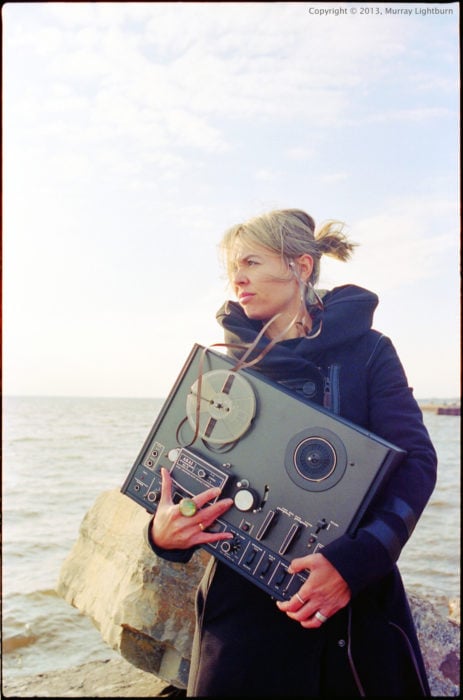 What does classical music mean to you?
What does classical music mean to you?
It means artistic freedom. Freedom of expression and creativity. Exploration – with no preconceived notions of what concert music should be. The primary concern isn’t/shouldn’t be about following trends, selling a product, selling records, etc.
The 21st century really should have no limitations in terms of sound choices except the aesthetic and creative ones imposed on oneself. And these are the most important limitations. I see no real label attached to classical music; concert music, art, ‘indie-classical – this is wide open and can mean anything. When I was a young person discovering classical music it was a world of endless sonic possibilities. I didn’t know what was next – the wide array of instrumentation choices, orchestration choices, aesthetics, techniques etc. and this is what excited (and excites) me about it.
But there is another side to classical music. Classical music can also have associations with sexism, racism, ageism – it can be pro-convention and risk averse. I’ve witnessed it – I’ve certainly experienced it. It’s not unique to classical music but it remains very much a problem, and arguably more so than other art forms. As light is being shed on inequality in the film world – particularly in film direction and cinematography – it’s actually film composers that have the lowest statistic when it comes to representation. And this all keeps the art form from moving forward. But I’ve worked with incredible artists within the ‘classical music’ world – with passionate, open minds – and it is this “classical” music world I love.
Who have been female role models that have inspired you throughout your career?
When I was discovering music (and film) in my youth, most of my role models were men – certainly in the world of classical composers, film composers and filmmakers/cinematographers. I listened to a wide variety of music and even within other styles of music, i.e. pop, metal, hip-hop, electronica. Although there were more women represented in these genres, the majority of those I listened to and followed closely were men. The exception was Annie Lennox. I was about 10 when I first heard the Eurythmics and Annie Lennox made a major impression.
But it wasn’t until I was about 16, 17 and really delving into alternative music genres did I discover other female role models: Sinéad O’Connor, Kim Deal, Siouxsie Sioux, Kim Gordon, and, especially, Kate Bush. Kate Bush was someone I had heard about but never really paid attention to because when she was on the charts with “Hounds of Love,” I was deep into metal. In 1989, I saw a TV special that played a block of her videos, starting with “Wuthering Heights,” which I had never heard before. I had never heard anything like this – and pressed record on the VCR to catch the last half of the song. I remember that this special came on in the morning before I had to get to school and all I could think about that day was getting back home to hear that song again. I immediately became obsessed. I bought all her records, her video collection on VHS, magazine back issues – I tried to find anything I could about her. I remain ardent to this day and can say without a doubt she is a strong influence. She’s completely idiosyncratic, fearless, risk-taking, always surprising her listeners. There is so much depth to her work. She’s heavily involved in all aspects of it – composing, performing, producing, story-boarding and directing her own videos, acting – which lends her work its distinctive sound and look.
What has been the greatest challenge in your career?
Staying true to myself and not following a path that may have made things easier. Which meant doing things differently than what was expected and accepted – going against the preconceived notions of what classical music “should be.” This also meant being faced with the accusations that my music is not serious; that turntables, glitch, drum kit, 8-bit – these cannot possibly be notated for and coexist alongside members of a chamber ensemble and be a means of expression and emotion.
Also, integrating live performance with film means twice as much time spent on a work – which means sleep is even more scarce.
What has been most rewarding about your art?
Being able to immerse myself completely in it and devote my life to it. Being recognized for what I do, while always keeping steadfast with my vision and being true to myself. Seeing seemingly impossible projects come to life. Working with many, many fantastic musicians from around the world. My work has led to meeting and collaborating with artists from other art forms and professions: filmmakers, choreographers, writers, visual artists, scientists, and an astronaut.
What advice would you give to someone entering the field today?
Be original. I believe artists have to have something of their own to say. Make sure you have unrelenting passion for it – and find other people that share your passion – because it’s going to be challenging. But embrace that challenge and let the passion drive you. Don’t let fear cripple you. “Mistakes” (or what are perceived as mistakes) are essential to growth.
Nicole Lizée: Hitchcock Études
To listen to these and more programs, visit wfmt.com/programs/relevant-tones.

